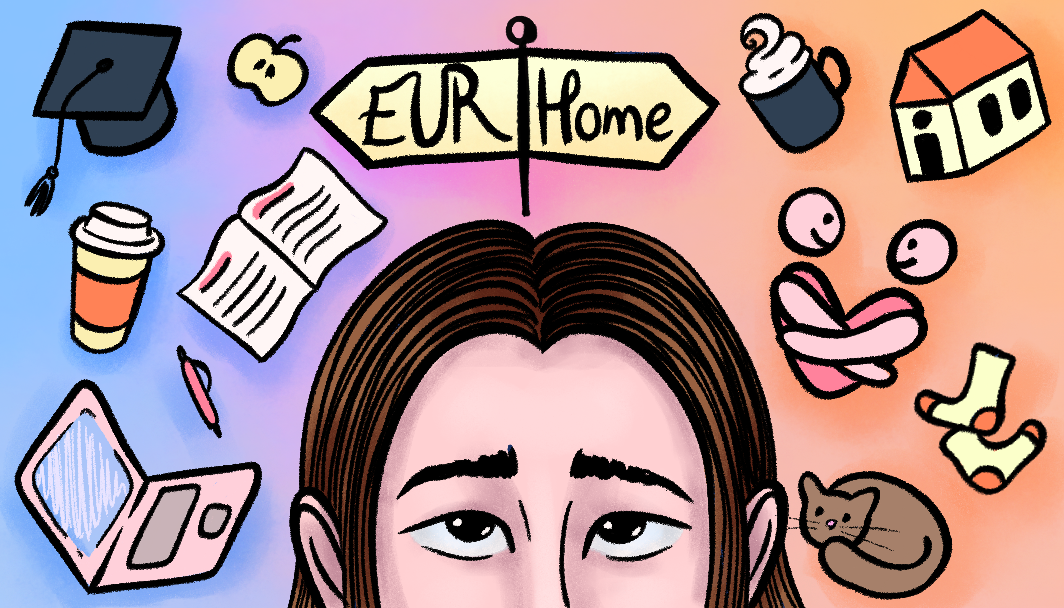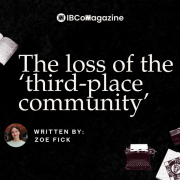Leaving your home country to study abroad entails trying to transfer your entire life and your entire existence onto another physical territory. This implies a change in your mental “territory”, as each physical place comes with a certain lifestyle, and a certain way of thinking and looking at general life concepts such as love, education, politics. The way each one of us approaches a new life stems from how we were used to live, how much we enjoyed it, how open we are to the entirety of new, and how much better this “new” has the potential to be.
I left Romania feeling regret and sadness, because I knew that from the 13th of August 2019 onwards, my life in Bucharest will cease to exist. Very similar to what happens when someone you love is gone and leaves all their things behind, as if suddenly stuck in time. This is what I did, too. I left the relics of my life in Bucharest in my bedroom, in the house where my parents have been living in the past 5 years. I gave all my notebooks and agendas to a loving friend that I lost in the meantime, I let my friends take clothes that I was not going to bring with me to Rotterdam, and I offered books to anyone willing to read them. I scraped off years of memories from the walls. And there I was (not)! I left my friends and my family with a bitter sadness in their hearts. Some were crying, some were struggling to smile at me, and some already missing me, holding onto all the things that I gave them.
Since then, every time I come back, time seems to have stopped while I was gone. The minute I step foot in Bucharest, life proceeds and time seems to expand, allowing me to enjoy it as much as I can, feeling like I never even left. This mirage that makes me take Bucharest for granted goes away the minute I say goodbye to my loved ones again. And then I return to the life I have built in Rotterdam, an empty canvas that has now taken a shape and form better than everything I ever dared to want in Bucharest. This is the human condition we all signed up for, by choosing to abandon the familiar good (and bad) for a potentially better unknown.
When I arrived in Rotterdam, I lived my fair share of “culture shock”. Living here showed me how much there can be done when a group of people trust each other, take initiative and make intelligent decisions. I always wanted my beloved Bucharest to have a majority of people like these, and I was saddened by the thought that for now, this kind of people are a minority that are struggling to do good for a city in decay, at the mercy of corrupt politics.
At first, my adaptation process was just trying to transfer my emotional baggage to an empty immensity that was my new life in Rotterdam. I symbolized this transformation through a mere three-hour flight. It wasn’t very long until I realized I was trying to recreate the lifestyle and mindset that I was used to in Bucharest. Stubbornly, I was looking for a familiar routine. I decorated my bedroom with the same colors, I was closely in contact with everyone I left behind, and I was emotionally tied to the one I fell in love with in Bucharest.
But after some time passed, I learned how to live two lives at (more or less) the same time. I gave up the habits I associated with Bucharest and made room for the life that I am building in Rotterdam. I have come to embrace separation & reunification as processes that will repeat over and over again, for who knows how long, between two lives that are more and more separated from each other. But somehow, somewhere, someone is always waiting for you to come back.
Author: Bianca Raicu
Editor: Gwendolyne Cheung
Illustrator: Ira Lizenko


